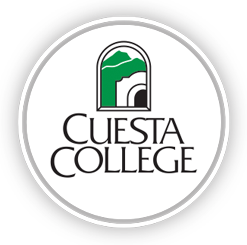Participatory Governance
Purpose of Participatory Governance
This decision-making model brings clarity to accountability and reporting requirements,
improves
communication between committees, and provides assessment and improvement processes
for
committees; including evaluating the roles and responsibilities, composition, and
effectiveness of
committees. Participatory governance provides an opportunity for various stakeholders,
including students, faculty, classified professionals, and administrators to have
a voice in shaping policies, programs, and initiatives at Cuesta College.
Participatory governance is guided by the principles outlined in the California Education code, Title 5 regulations, and our own local policies.
Committee Structure
The committee structure of the SLOCCCD is grounded by the district’s mission and is
focused on
achieving institutional effectiveness and student success. The district’s committee
structure ensures
compliance for participatory governance as stated in AB 1725, Title 5 regulations,
and the California
Education Code, and offers opportunities for individuals to learn more about and participate
in
governance and decision-making in the district. The district’s Committee Membership
List is
published annually and is made available on the Cuesta College website accreditation
page under
the governance link and posted on SharePoint.
The committee structure also supports the process of reflective institutional dialogue
and the
foundation of the standards of the Accrediting Commission for Community and Junior
Colleges
(ACCJC). The ACCJC gives dialogue a central place in the district’s focus on institutional
effectiveness, participatory governance, and student learning. The Guide to Institutional
Self-
Evaluation, Improvement, and Peer Review states, “Institutional leaders create and
encourage
innovation leading to institutional excellence. They support administrators, faculty,
staff, and
students, no matter what their official titles, in taking initiative for improving
the practices,
programs, and services in which they are involved. When ideas for improvement have
policy or
significant institution-wide implications, systematic participative processes are
used to assure
effective planning and implementation.” The work and actions of the SLOCCCD committees
support student learning, planning, resource allocation decisions, and ongoing improvement
for the
short- and long-term sustainability of the district.
